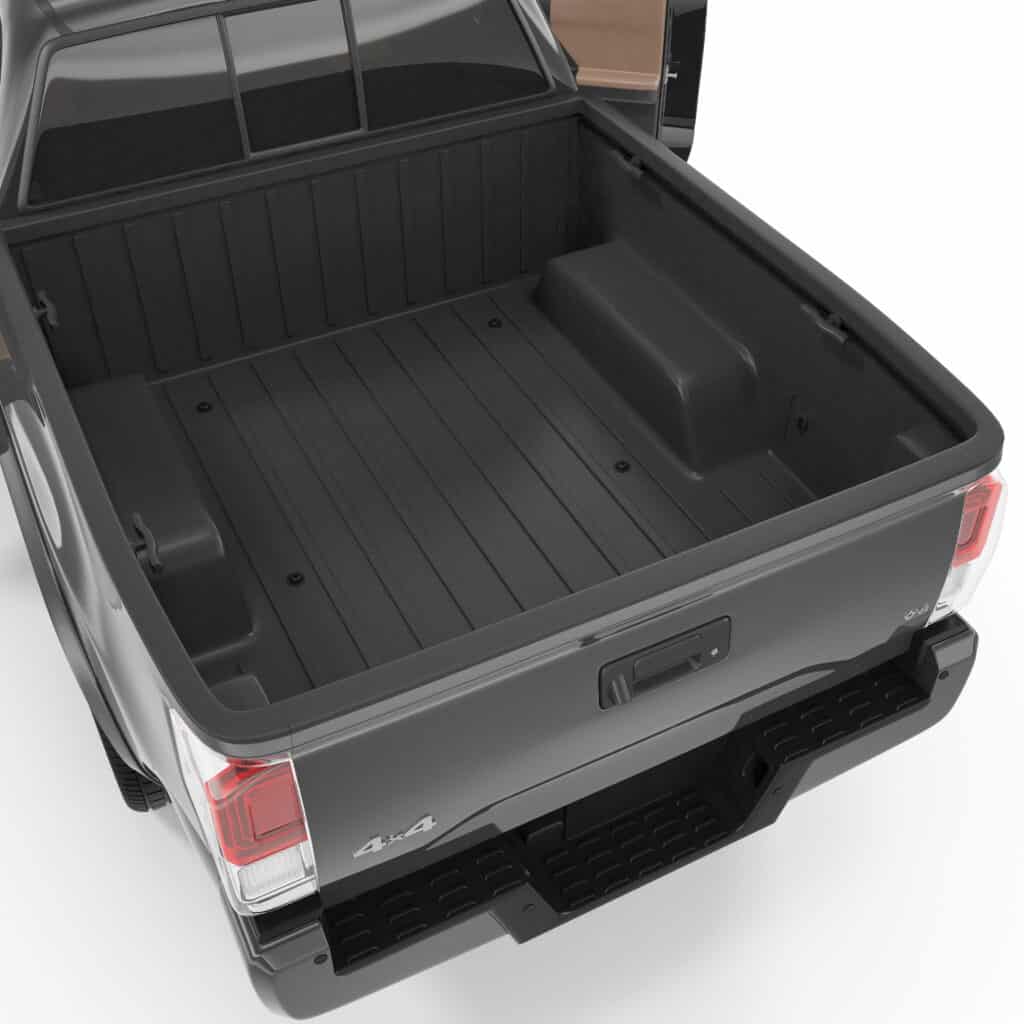What Length Camper Fits a Short Bed Truck?
Truck bed campers have become more and more popular in recent years because they are compact, comfortable, and easy to transport. They are the perfect middle option between a tent and a camp trailer. You don’t have to sleep on the ground, and yet you also don’t have to pull a massive trailer over bumpy roads.
Truck bed campers for short bed trucks are designed to fit into a standardized short truck bed that is 5 feet long. Truck bed campers that are compatible with trucks are based on the length of the truck, the weight capacity of the truck, and their center of gravity.
In no time you can be driving down a dirt road fully equipped with all you need. But before you get there, you first need a couple of measurements. A good truck bed camper will also mean you need a good truck, one that can hold the weight of the trailer as well as the weight of all your passengers and equipment. Think of all those blankets, water jugs, portable stoves, and food supplies you will have with you on almost all of your camping adventures. In addition to length, there are a lot of important things to consider when you are about to purchase a truck bed camper.
Size & Weight
Short bed trucks generally have a bed that is about 5 feet long. Regular truck beds are normally 6.5 feet long and some are even larger. Truck bed campers are made to fit the trucks that are around during the time they are produced. This means that if you have a 2012 Chevy Truck, it is likely that the new camper that comes out in 2013 will fit the dimensions of your short bed truck.
Knowing this, we see that knowing the length of the camper may not be the most important question because truck campers are made to either fit short bed trucks, or long bed trucks, and there are normally no other options because that is the standard size.
The other important aspect of the size you will need to know is the weight of the camper. The weight of the camper will need to be within a specific range depending upon your truck. If you have a truck with a low payload or weight capacity, then your camper will have to be lightweight. Therefore the next step in finding the right camper for you is determining the weight of your truck, and how much more weight it can handle.
You may be surprised to find out that the payload weights that many truck manufacturers publish aren’t quite accurate. Sometimes a truck cannot really carry that much weight, even though it says it can on all the advertisements.

In order to determine the payload capacity of your truck, you will need to know the total weight that your truck can handle. This is given to you by the manufacturers and is known as the Gross Vehicle Weight Rating (GVWR). Then you will need to get the weight of your truck by weighing it on a certified scale.
Keep in mind though that the passengers you have, how much gas is in your tank, and anything already in the bed will affect this weight. Once you know the weight of your truck, you can subtract the weight of our truck from the GVWR and be given a number! That number is your carrying capacity! Try not to max out the truck though by getting too close to that number and bear in mind that you will not only have the camper weight, but the weight of all the other equipment you will be bringing along with you.
When you have all the numbers in hand, it will also be important to remember that the weight of the camper needs to include the propane bottles that are filled and attached, plus there may also be a freshwater tank that it comes equipped with. It could weigh anywhere from 10 to 30 pounds and hold only a few gallons of propane.
The freshwater weight should also be calculated based on the size of the container, the size of the water heater, and how much water each unit will hold.
Center of Gravity
Another important aspect to consider is where the truck bed camper will put the majority of its weight. Chances are you don’t want it to put all the weight behind the fear axle because that might make you pop a wheelie and may cause a lot of damage. You want the center of gravity to be at the front of the bed, before the rear axle. It may be good to have this measure.
In order to get this, you just need to measure from the front wall of your truck bed, to the rear axle, normally centering your measurement in the middle of the rear axle. This will show you the number of inches you have to place the main weight of your camper.
If you don’t want to have to meticulously measure your truck and camper, you can get a rough estimate of weights that include everything you will need for a trip into the forests, mountains, or beaches, and just make sure your truck’s payload capacity exceeds your calculations and you should be good to go!

In the end, you may not have thought you would need some polished math skills, but it is important to know a lot of different measurements not only about the camper but also about your truck! After a few quick measurements here, and a weight calculation there, you will be set to hit the road with a truck and a camper in one!
The great outdoors calls for adventure. You can camp under the stars, sit around a burning campfire, or hike up and down an endless amount of trail. All you need is a good place to lie your head down at night before you go to sleep. A cozy bed and a bright campfire await you as long as you pick the right camper for your truck!
